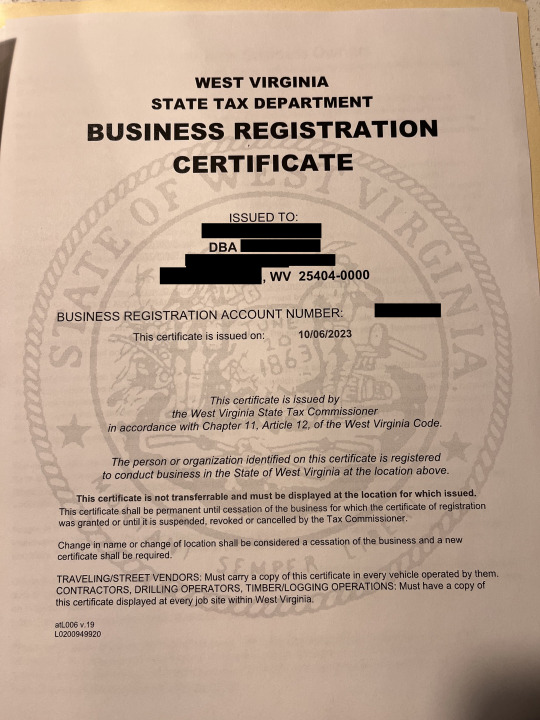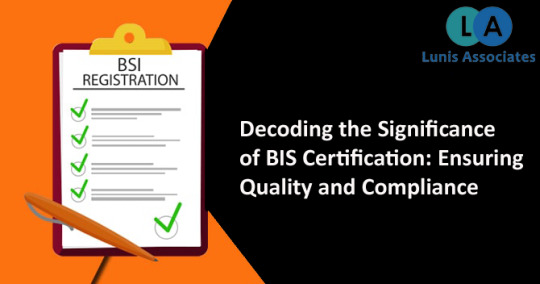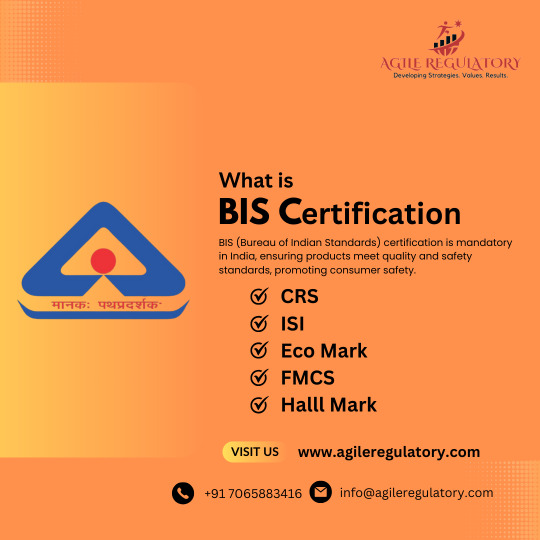#Registration Certificate
Explore tagged Tumblr posts
Text
QLD Real Estate Registration Certificate Course
The Certificate of Registration Course is the minimum educational requirement you need to work in the real estate industry within Queensland. Enrol in the QLD Registration Certificate Course to kickstart your real estate career. Complete in 6 months to meet QLD Office of Fair Trading requirements.
#Registration Certificate#Real Estate Registration Certificate#Real Estate Courses#Real Estate Registration Course
1 note
·
View note
Text
Meldebescheinigung: Your Guide to the German Registration Certificate
The Meldebescheinigung is a German term that translates to “registration certificate.” Local authorities in Germany issue this official document. It confirms a person’s residence at a specific address. This certificate is often required for various administrative purposes. These include applying for a visa, opening a bank account, or registering with health insurance. To obtain a…
0 notes
Text
#attestation services in qatar#attestation agency in qatar#Registration Certificate#Certificate of Incorporation
0 notes
Text
Don’t keep hard copy of driving license or RC show online
If traffic police, RTO, or DTO stops any vehicle driver for checking, one can show their downloaded documents through MParivahan App or Digilocker. Moreover, inspecting officers have to accept it. https://scienceofpolitics.in/show-driving-license-rc-online-mparivahan-digilocker-acceptable/

#traffic#traffic rules#mohali#driving license#registration certificate#digilocker#mparivahan#digilocker challan
0 notes
Text
She passed the CGC test!!! I’m so proud of her! My roommate who is better with a camera than I am is going to help me take some celebration pictures over the weekend!
#I completely forgot to do her akc registration and it’s still sitting in her document folder#so it’s gonna be a minute before I get the certificate and stuff#but she has her first ribbon! I get to start her ribbon wall!
9 notes
·
View notes
Text
How to Obtain a Birth Registration Certificate
Grievance Status for registration number : UIDAI/E/2025/0000753Grievance Concerns ToName Of ComplainantYogi M. P. SinghDate of Receipt12/01/2025Received By Ministry/DepartmentUnique Identification Authority of IndiaGrievance DescriptionUnique Identification Authority of India >> Non Updation of AADHAAR >> Documents related Issues for Aadhaar updation State which is mentioned on your Aadhaar : …
#Aadhar update#Birth registration certificate#corruption in aadhar update#Unique identification authority of India
2 notes
·
View notes
Text
Get hassle-free RNI Registration for your news portal or newspaper. Our experts guide you through the entire RNI registration process and help you obtain your RNI Registration Certificate. Ensure compliance with the Registrar of Newspaper for India. Start your registration today!
#Rni registration#RNI Registration in India#Registrar of Newspaper for India#RNI Registration Certificate
2 notes
·
View notes
Text

2 notes
·
View notes
Text

BIS Registration is vital for ensuring product quality and consumer safety in India. It establishes trust, compliance with legal standards, and market access for manufacturers. Mandatory for various industries, it protects against legal issues while promoting safer products, enhancing brand reputation, and expanding market opportunities.
2 notes
·
View notes
Text
Who can apply for a BIS certification?
Bureau of Indian Standards (BIS) certification is available to various entities, including:
Manufacturers: Both Indian and foreign manufacturers can apply for BIS certification for products that require mandatory certification or if they voluntarily wish to certify their products for the Indian market.
Importers: Importers can apply for BIS certification if they are importing products into India that require mandatory BIS certification.
Traders: Traders who wish to sell products that fall under the mandatory certification scheme must ensure that the products they trade are BIS certified.
Exporters: Exporters intending to sell products in India may apply for BIS certification to meet Indian regulatory requirements.
Foreign Entities: Foreign manufacturers can directly apply for BIS certification or through an Authorized Indian Representative (AIR) if they want to sell their products in India.
The application process involves submitting necessary documents, undergoing testing and inspection, and complying with the relevant Indian Standards.

3 notes
·
View notes
Text
<<< THIS PERSON IS NOW A LEGAL BUSINESS OWNER!!!!!!!!!!!!!!!!!!!!!!

i finally did it!!!! wahoooooooooooooooo
#i went and got my registration certificate today#all the tax stuff started and a new checking account made for the business and everything#the rii professional baker arc begins NOW#rii rambles
13 notes
·
View notes
Text
A guide to enhance your business growth
Running a business is akin to navigating a complex maze, and every entrepreneur dreams of not just surviving but thriving. In the Indian business landscape, the government has laid out a golden path for micro, small, and medium enterprises (MSMEs) through a simple yet powerful tool – MSME registration. In this guide, let's explore how this seemingly mundane registration process can be your ticket to unparalleled business growth.
Understanding the MSME Advantage
The Heartbeat of the Economy:
Micro, Small, and Medium Enterprises collectively form the heartbeat of the Indian economy. From local grocery stores to innovative startups, these businesses contribute not only to economic development but also to job creation, fostering a robust and inclusive growth environment.
Unlocking Financial Avenues:
One of the immediate perks of MSME registration is the access to financial assistance and credit facilities. Financial institutions offer tailored loans at favorable terms, recognizing the importance of these enterprises in driving economic progress.
The MSME Registration Journey
A Simpler Path Than You Think:
Contrary to popular belief, the MSME registration process is not a bureaucratic labyrinth. It's a straightforward journey that involves providing essential details about your business, such as PAN, Aadhaar, and other relevant information. Whether you choose the online portal or opt for the traditional route at District Industries Centres, the process is designed to be accessible.
Documents: Your Passport to Opportunities:
The importance of documentation in the registration process cannot be overstated. Your Aadhaar card, PAN card, business address proof, and details of your plant and machinery are the keys that unlock the door to a myriad of government schemes and subsidies.
The MSME Advantage Unveiled
Market Access and Procurement Preferences:
Once you've acquired your MSME registration, you find yourself in a prime position in government procurement. MSMEs are often given preference in government tenders, providing a golden opportunity to secure contracts and expand your market reach.
Technology Upgradation and Subsidies:
In the rapidly evolving business landscape, technology is the differentiator. MSME registration brings with it the chance to upgrade your technology with subsidies for adopting new and advanced processes. This not only boosts efficiency but also enhances your competitiveness.
Navigating the Schemes and Subsidies Landscape
Credit Linked Capital Subsidy Scheme (CLCSS):
At the forefront of government schemes is CLCSS, a game-changer for technology upgradation. It provides capital subsidies to MSMEs, facilitating access to credit for purchasing new machinery and equipment.
Pradhan Mantri Employment Generation Programme (PMEGP):
For those looking to embark on the entrepreneurial journey, PMEGP is the beacon. This credit-linked subsidy program promotes self-employment, creating not just businesses but livelihoods.
Credit Guarantee Fund Scheme for Micro and Small Enterprises (CGMSE):
The fear of collateral is a common hurdle for many small businesses. CGMSE eliminates this barrier by offering collateral-free credit facilities, making it easier for MSMEs to access the capital needed for growth.
Tailoring Your Approach
District Industries Centres (DIC) and National Small Industries Corporation (NSIC):
Think of DIC and NSIC as your business allies. DIC, as a local agency, offers guidance and support, while NSIC provides a range of services from marketing assistance to credit facilitation. Engaging with these institutions can significantly enhance your MSME journey.
Tech and Quality Upgradation Support:
The government's emphasis on quality is evident through schemes like Lean Manufacturing Competitiveness Scheme (LMCS) and Quality Management Standards & Quality Technology Tools (QMS/QTT). These initiatives not only boost competitiveness but also position your business as a paragon of quality in the market.
Export Promotion and Market Development:
Venturing into global markets can seem daunting, but the Market Development Assistance Scheme for MSMEs is a trustworthy companion. It provides financial support for participating in international trade fairs, opening doors to new business horizons.
Overcoming Challenges for Seamless Growth
Lack of Awareness:
One of the challenges MSMEs often face is the lack of awareness about available schemes. Entrepreneurs can overcome this by actively seeking information through government portals, industry associations, and local MSME support cells.
Complex Application Processes:
Cumbersome application procedures can be discouraging, but persistence pays off. Simplifying the application process and seeking assistance from dedicated facilitation services or MSME support agencies can make the journey smoother.
Continuous Evaluation and Adaptation
Performance and Credit Rating Scheme:
Enhancing your creditworthiness is an ongoing process. The Performance and Credit Rating Scheme allows MSMEs to undergo assessments, showcasing financial stability to potential investors and lenders.
Embracing Continuous Improvement:
The business landscape is dynamic, and your approach should be too. Regularly assess the impact of government schemes on your operations, adapt to changes, and stay informed about updates to maximize benefits continually.
Conclusion: Your Journey to Unprecedented Growth
In conclusion, MSME registration in India is not just a formality; it's your gateway to a realm of opportunities. By understanding the classifications, embracing government schemes, and overcoming challenges, you position your business for sustainable growth. The government's commitment to fostering MSMEs is a testament to the integral role these enterprises play in shaping the nation's economic future. So, don't just register – embark on a journey of growth, innovation, and success. The path is laid; it's time to walk it.
Learn more at : https://msme-registration.in/
#udyog aadhar free registration#msme free registration#msme registration free#print udyam certificate#free udyog aadhar registration#udyog aadhar update#msme registration online#msme loan#online business#msme
2 notes
·
View notes
Text
Decoding the Significance of BIS Certification: Ensuring Quality and Compliance
Introduction:
In today's rapidly evolving global marketplace, where consumers are becoming increasingly conscious of product quality and safety, regulatory standards play a pivotal role. One such crucial certification is the BIS (Bureau of Indian Standards) certificate. This blog aims to unravel the importance and impact of BIS certification, shedding light on its significance for both businesses and consumers.

Understanding BIS Certification:
What is BIS Certification?
The BIS certification is a mark of quality and safety awarded by the Bureau of Indian Standards. It serves as a testament that a product complies with the specified Indian standards, ensuring that it meets the necessary criteria for quality, safety, and performance.
Products Covered by BIS Certification:
Explore the diverse range of products that fall under the purview of BIS certification, ranging from electronic goods and appliances to industrial machinery and consumer products. Understanding the extensive list of items requiring certification underscores its widespread applicability.
Why BIS Certification Matters:
Consumer Confidence:
Discover how BIS certification builds consumer trust by assuring them of product quality and safety. Uncover the role it plays in enhancing the credibility of a brand and how consumers have come to rely on this certification as a marker of excellence.
Legal Compliance:
Examine the legal implications of BIS certification for manufacturers and businesses. Delve into the regulatory framework that makes BIS certification mandatory for certain products and the consequences of non-compliance.
The BIS Certification Process:
Step-by-Step Guide:
Demystify the BIS certification process, breaking it down into comprehensible steps. Gain insights into the documentation, testing, and verification stages, helping businesses navigate the certification journey seamlessly.
Cost and Time Implications:
Explore the cost and time factors associated with obtaining a BIS certificate. Understand how this investment contributes to long-term benefits for businesses, outweighing the initial challenges.
The Vital Role of a BIS License
Shed light on the importance of obtaining a BIS license for manufacturing and selling regulated products.
Explain how a BIS license contributes to legal compliance and market acceptance.
Showcase success stories of businesses that have benefited from holding a BIS license.
BIS Certification and Sustainable Practices:
Environmental Considerations:
Explore the role of BIS certification in promoting environmentally sustainable practices. Discuss how adherence to BIS standards contributes to reducing environmental impact and ensuring the longevity of products.
Social Responsibility:
Examine how BIS certification aligns with corporate social responsibility initiatives. Discuss the positive social impact of ensuring that products meet BIS standards, including improved working conditions and fair trade practices.
Empowering Businesses:
Small and Medium Enterprises (SMEs):
Highlight the role of BIS certification in empowering small and medium enterprises. Discuss how obtaining BIS certification can level the playing field, allowing smaller businesses to compete on a larger scale.
Innovation and Competitiveness:
Explore how BIS certification fosters innovation and enhances the competitiveness of businesses. Discuss real-world examples of companies that have thrived by prioritizing quality through BIS certification.
Challenges and Opportunities:
Overcoming Hurdles:
Acknowledge the challenges businesses may face during the BIS registration process and explore strategies to overcome them. From understanding complex standards to addressing testing requirements, businesses can navigate these challenges effectively.
Market Access and Opportunities:
Uncover the market advantages that BIS-certified products enjoy, both domestically and internationally. Discuss how BIS certification opens doors to new opportunities and markets, contributing to the overall growth of businesses.
Conclusion:
In conclusion, obtaining a BIS certificate, completing online BIS registration, and acquiring a BIS license are integral steps for businesses aiming to thrive in the Indian market. By prioritizing quality assurance and regulatory compliance, companies can build trust among consumers, gain a competitive edge, and contribute to the overall safety and reliability of products in the marketplace. Embrace the journey towards BIS certification and position your business for success in the dynamic landscape of Indian trade and commerce.
By delving into the intricacies of BIS certification, this blog aims to empower businesses with the knowledge needed to navigate the certification landscape, fostering a culture of quality and compliance in the ever-evolving market.
2 notes
·
View notes
Text

BIS (Bureau of Indian Standards) certification is a mandatory quality and safety certification process in India that ensures products conform to specific standards and regulations set by the BIS. This certification is designed to guarantee that various products, ranging from electronics and appliances to industrial goods and food products, meet the established quality, performance, and reliability requirements. Manufacturers are required to obtain a BIS license, adhere to BIS standards, and label their products with the BIS mark, signifying compliance. BIS certification plays a critical role in consumer protection, product safety, and the promotion of quality standards within the Indian market, both for domestically manufactured and imported goods.
https://www.agileregulatory.com/service/bis-certification
#bis certification#bis certification for electronic products#bis hallmark certificate#bis certification list#bis registration#hallmark#fmcs#bisfmcs#bisforeignmanufacturer#bishallmark#isimark#Bisconsultant#bislicense#biscrs#bisisimark#bisforimport#biscertificationforimport
2 notes
·
View notes
Text
#dating#family#lifestyle#marriage#wedding#online marriage#catholic marriage counseling#registration marriage#online premarital counseling#register marriage#online wedding certificate#file marriage license#black marriage counseling#dating site marriage#order marriage license#request marriage license#online marital counseling#online nikah service#dating websites marriage#online dating marriage#online couples therapy#certified copy marriage
2 notes
·
View notes
Text
Bluehost Review 2023: Is it Still the Best Web Host for Your Website?
Are you looking for a reliable web hosting provider for your website?
Look no further than Bluehost, one of the most popular web hosting providers in the market. In this Bluehost review, we'll take a closer look at Bluehost and its features to help you decide if it's the right choice for your website.

What is Bluehost?
Bluehost is a web hosting company that was founded in 2003. It's based in Utah, USA, and is owned by Endurance International Group, a company that also owns other popular web hosting providers such as HostGator and iPage. Bluehost offers a variety of hosting plans, including shared hosting, VPS hosting, dedicated hosting, and WordPress hosting.
Why choose Bluehost?
There are many reasons why Bluehost is a popular choice among website owners.
Here are some of the key benefits of using Bluehost: Reliability: Bluehost guarantees an uptime of 99.9%, which means your website will be available to your visitors almost all the time. Speed: Bluehost uses SSD drives and Cloudflare integration to ensure fast page loading times.
Security: Bluehost offers free SSL certificates and has various security measures in place to protect your website from malware and hackers.
Ease of use: Bluehost's control panel is user-friendly and easy to navigate, even for beginners. Customer support: Bluehost provides 24/7 customer support via live chat, phone, and email.
Bluehost Pricing
Bluehost's pricing is competitive and affordable, making it accessible to small business owners and individuals.
Here are the pricing plans for Bluehost shared hosting:
Basic: $2.95 per month (renews at $7.99 per month)
Plus: $5.45 per month (renews at $10.99 per month) Choice Plus: $5.45 per month (renews at $14.99 per month)
Pro: $13.95 per month (renews at $23.99 per month) All plans come with a free domain for the first year, unmetered bandwidth, and a free SSL certificate.
Bluehost Features
Bluehost offers a range of features to help you build and manage your website.
Here are some of the key features:
One-click WordPress installation: Bluehost makes it easy to install WordPress with just one click. Website builder: Bluehost has a drag-and-drop website builder that allows you to create a website without any coding knowledge.
Domain manager: Bluehost allows you to manage your domain settings and DNS records from one place. Email hosting: Bluehost provides email hosting services, allowing you to create custom email addresses using your domain name.
eCommerce tools: Bluehost offers integrations with eCommerce platforms such as WooCommerce and Shopify, making it easy to start an online store.
Bluehost Review Summary
Bluehost is a reliable and affordable web hosting provider that offers a range of features to help you build and manage your website. It's an excellent choice for small business owners and individuals who are looking for a user-friendly web hosting provider with excellent customer support.
If you are in need of a good hosting provider, Bluehost is definitely worth considering. It is a perfect choice for beginners as well as experienced users who require reliability, speed, and security.
Finally, if you want to learn more about web technology, web design, and gaming, check out WebTechTips.co.uk. They have an extensive collection of articles, guides, and tutorials on these topics.
Get started with Bluehost today and take the first step towards a fast and reliable website. Fill out the form above to sign up now!
#Web hosting#Website builder#Domain name#Shared hosting#WordPress hosting#VPS hosting#Dedicated hosting#Cloud hosting#Website management#Email hosting#E-commerce hosting#Website security#SSL certificates#Site backups#Customer support#Control panel#Domain registration#Website migration#Performance optimization#Server uptime#Marketing tools#Affiliate program#Pricing plans#Website templates
3 notes
·
View notes